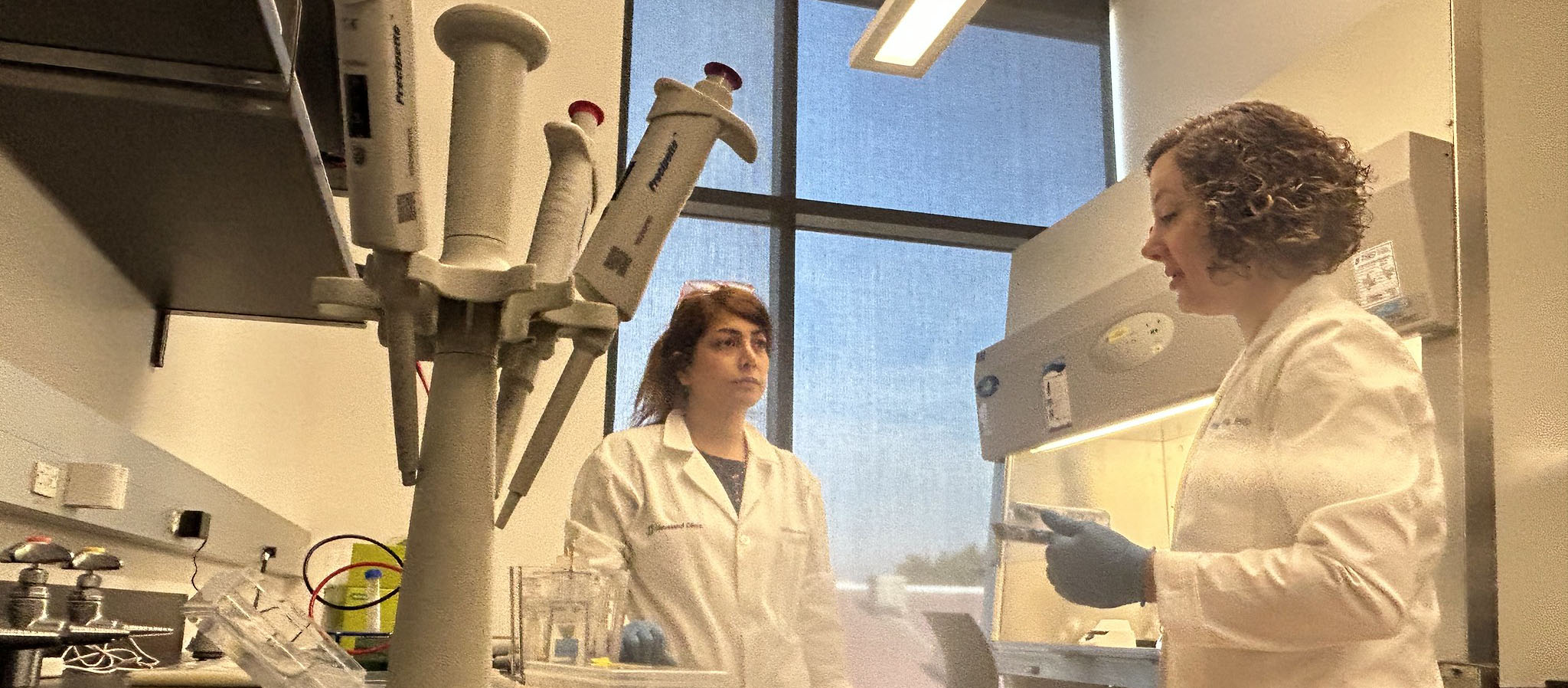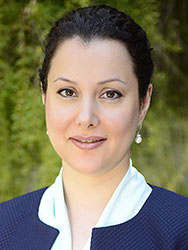Department of Food Science and Nutrition
Nutritional Sciences
Experimental metabolism of nutrients and the interaction of genetic background, dietary intake, and related metabolic disorders.

Mission Statement
The mission of the faculty of the Department of Food Science and Nutrition is to:
Impart food-related knowledge and skills to our students
Apply food-related knowledge and skills to research and scholarly activity
Integrate with industry and students to apply food-related knowledge and skills to
advance the region.
Program Learning Outcomes (PLO):
PLO 1N: Students will be prepared to participate in research projects and professional development within the fields of human nutrition and research.
- SLO 1N.1: Students will identify central issues and current research areas that are important in the field of human nutrition.
- SLO 1N.2: Students will design, and interpret research projects or pilot studies.
- SLO 1N.3: Students will implement research that could be submitted in a peer-reviewed journal or professional/technical audience.
- SLO 1N.4: Apply knowledge of biochemistry and physiology to human nutrient metabolism.
Bachelor of Science Degree Requirements
Human Nutrition Sciences major requirements (47 units) and Additional Requirements (28 units)
- Core (28 units) CULG 50; FSC 1; NUTR 53, 61, 153, 154, 160, 165, 166S, 170
Career Specialty Emphasis (22 units)
In consultation with assigned faculty advisor, each student is required to select one area of electives to match his or her career goals. Career specialties include the following:
Registered Dietitian Nutritionist:
- COUN 174; FSM131, 133; NUTR 149, 156, 157, 175; additional courses approved by advisor.
Select 3 units of electives from the following list: CULG 152; FSM 60, 134, FSM 193I; NUTR 147, 162T or courses approved by the Dietetics and Food Administration program coordinator.
Nutritional Science:
- FSC 115; NUTR 162T, NUTR180; PH 109, PH 135; PHYS 10; additional courses approved
by advisor.
Select 3 units of electives from the following list: CULG 55, 152; FSM 60, 131, 193I; NUTR 147, or courses approved by the Nutritional Science program coordinator.
Additional requirements for Human Nutrition Sciences (28 units)
- CHEM 3A, 8, 150; BIOL 20; BIOL 67A/B; MATH 11; PSYCH 10
- General Education requirements (49 units)
- Other requirements (6 units) Upper-division writing and Multicultural and International (MI)
- Sufficient elective units to meet required total units (varies)
- Total units (120)*
* This total indicates that 13 units for CHEM 3A [GE Area B1], MATH 11 [GE Area B4], NUTR 53 [GE Area E1], and PSYCH 10 [GE Area D3] are used to satisfy the General Education requirements. G.E. and MI courses can be double-counted with major requirements. See advisor for details.
Contact Information
Questions concerning the Nutritional Science specialty at Fresno State, contact:
Shabnam Pooya, PhD
California State University, Fresno
Department of Food Science and Nutrition
Assistant Professor
Telephone:559-512-0687
Email: shabnampooya@csufresno.edu
Department Contact Information:
Food Science and Nutrition
5300 N Campus Drive, M/S FF17
Fresno, CA 93740-8019
Department Phone: (559) 278-2164
Department Office: Family and Food Science Building, Room 111
There are so many ways you can make a financial impact in the field of nutrition through the Fresno State Human Nutritional Sciences Program this giving season. We invite you to become a Founding Donor of this important cause by clicking the donation button below.

Shabnam Pooya, PhD
